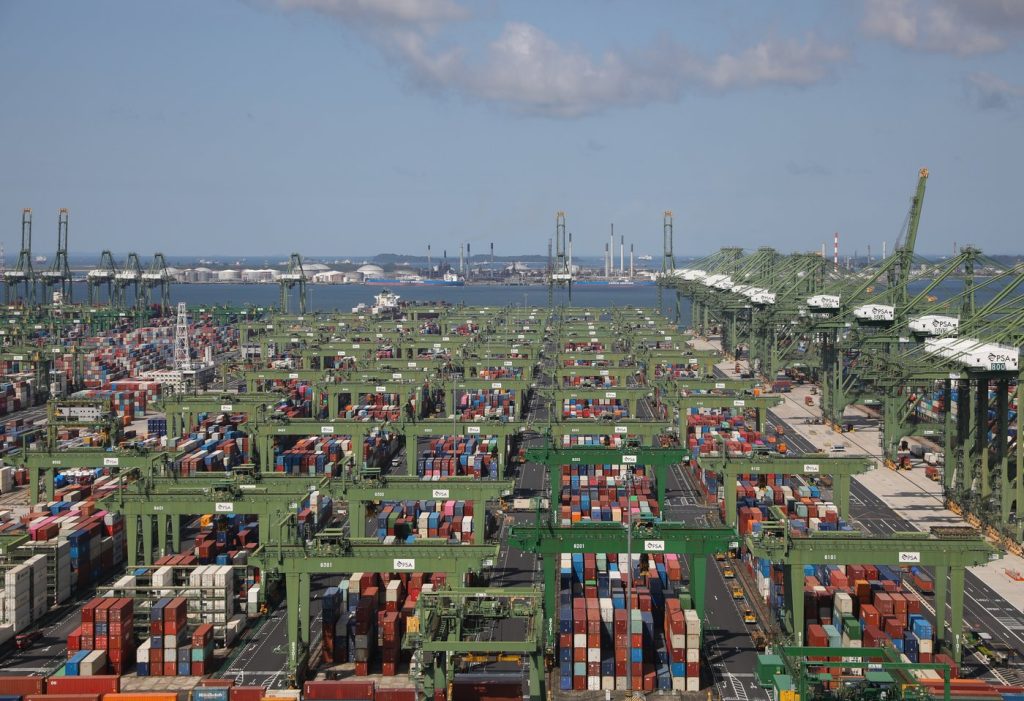SINGAPORE, Singapore – Environmentalists are raising concerns that carbon tax concessions awarded to major oil companies in Singapore may diminish the incentive to transition to cleaner energy sources. Activist groups are advocating for increased transparency regarding the tax discounts that the city-state, home to 6 million people, grants to high-emission companies. As the only Southeast Asian nation thus far to impose a carbon tax, Singapore's move has drawn attention as other regional countries, including Indonesia, Malaysia, and Thailand, prepare to implement similar taxes next year, while Vietnam and Brunei are contemplating such measures.
The Singapore government has asserted that these tax breaks are "not a free pass" for corporations to continue polluting. However, the government has not provided extensive information regarding the extent of these concessions or their impact on overall emissions. The National Climate Change Secretariat (NCCS) has pointed out that the deals are kept private in response to concerns from businesses that such disclosures might jeopardize their operational strategies.
Despite Singapore accounting for only 0.1% of global carbon emissions, it ranks 27th globally in terms of emissions per capita among 142 countries. According to Vinod Thomas, a senior fellow at the ISEAS-Yusof Ishak Institute, Singapore plays a crucial role as a regional leader, emphasizing that collective action in Southeast Asia will be essential in addressing climate change.
The carbon tax was introduced in 2019, with the intention to increase periodically, granting emissions-intensive companies adequate time to invest in cleaner technologies. However, concerns have surfaced regarding undisclosed concessions provided to select businesses. The NCCS maintains that only companies with credible plans for reducing their net carbon emissions have qualified for these tax reprieves.
To date, the tax applies to around 70% of Singapore's emissions, but the NCCS has yet to reveal specific data on emissions reductions caused by the tax. It has cited difficulties in isolating precise emissions data while promising to offer more information in due course. Local climate groups recently sent a letter to the government, demanding more clarity regarding the tax breaks, arguing that transparency can coexist with competitiveness.
Rachel Cheang, co-founder of Energy CoLab, a youth-led climate initiative, highlighted the challenges of assessing the tax's effectiveness without access to data. The original rate of the carbon tax was set at 5 Singapore dollars ($3.7) per ton, gradually increasing to 25 Singapore dollars ($19) last year, with plans for it to reach 45 Singapore dollars ($34.70) by 2026. Projections suggest the tax could rise to between 50 to 80 Singapore dollars (approximately $40-$60) per ton by the end of the decade.
The financial burden of the carbon tax predominantly impacts major energy companies such as ExxonMobil, Shell, and Chevron, with ExxonMobil operating Singapore's largest refinery on Jurong Island. While ExxonMobil and Chevron declined to comment on the situation, Shell stated that it would not provide any remarks. Environmental groups argue that making carbon emission data public would enhance accountability for these high-emission corporations.
Ordinary citizens in Singapore may also feel the repercussions of the carbon tax as it could lead to higher utility rates. Estimates from LepakInSG indicate that a carbon tax set at 50 Singapore dollars could raise the monthly utility bill for a typical four-room government-subsidized apartment by 8 Singapore dollars ($6.20). Activists caution that while such an increase may be manageable for most families, the government must protect vulnerable populations from disproportionate impacts.
The push for a clearer policy comes at a time when changes in the global landscape are impacting carbon tax discussions. Recent actions by U.S. President Donald Trump, particularly his dismissal of a lengthy international initiative to implement a global tax on shipping emissions, are expected to hinder the momentum towards expanding carbon taxes. Experts believe that as long as the U.S. continues to embrace fossil fuel reliance, progress in establishing carbon taxes worldwide will face significant barriers.
For activists like Cheang in Singapore, the urgency for transparency in carbon tax implementation and policies heightens. With the profound responsibility on the government to design and apply effective climate policies, they seek clarity in the carbon tax framework to ensure genuine progress toward emissions reduction.











